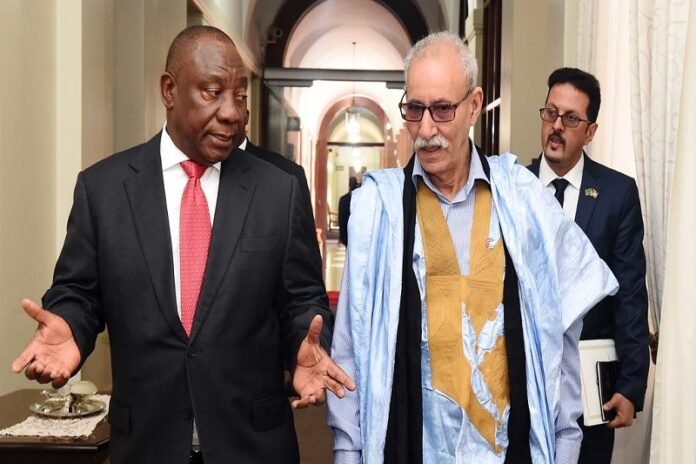The separatist Polisario Front is facing unprecedented frustration and confusion, gradually losing the international support it once relied on to achieve its ambitions of independence from the Moroccan Sahara. A recent report by the African Institute for Security Studies, based in Pretoria, sheds light on these shifts and their impact on the Front and its supporters, particularly South Africa.
The report draws on statements from South African officials who preferred to remain anonymous, expressing growing pessimism about the future of the Polisario. They noted that international support for the Front is significantly waning, and they are beginning to lose hope in achieving their goal.
The report considers the recognition of Moroccan sovereignty over the Sahara by France, Spain, and the United States, through the autonomy plan, as a major blow to the Polisario’s ambitions. Additionally, Morocco has succeeded in keeping the issue under the jurisdiction of the United Nations, away from the agendas of the African Union.
The report also cites Liezl Louw-Vaudran, a senior adviser to the African Union at the International Crisis Group, who emphasized Morocco’s success in reducing the influence of the Sahara issue within the African Union. Mohamed Yeslem Beissat, referred to as the “Polisario’s ambassador to the African Union,” also acknowledged the Front’s inability to rally the necessary international support.
The report indicates that the support once enjoyed by the Polisario in Africa is clearly dwindling, with only about 22 countries still recognizing it, while others have withdrawn or frozen their recognition pending a resolution to the conflict. At the same time, several African countries have opened consulates in the cities of Laayoune and Dakhla, implicitly recognizing Moroccan sovereignty over the Sahara.
In a move that further underscores the Polisario’s isolation, the city of Dakhla recently witnessed the inauguration of the General Consulate of the Republic of Chad, attended by Moroccan Foreign Minister Nasser Bourita and Chadian Foreign Minister Abdel Rahman Goulami Allah. Moroccan Prime Minister Aziz Akhannouch also welcomed the recent French decision, confirmed by President Emmanuel Macron, to support Moroccan sovereignty over the Sahara.
This shift in the positions of international and regional powers reflects a notable decline in the influence of the Polisario and its traditional supporters, further isolating it in the face of growing international support for Morocco’s stance.


